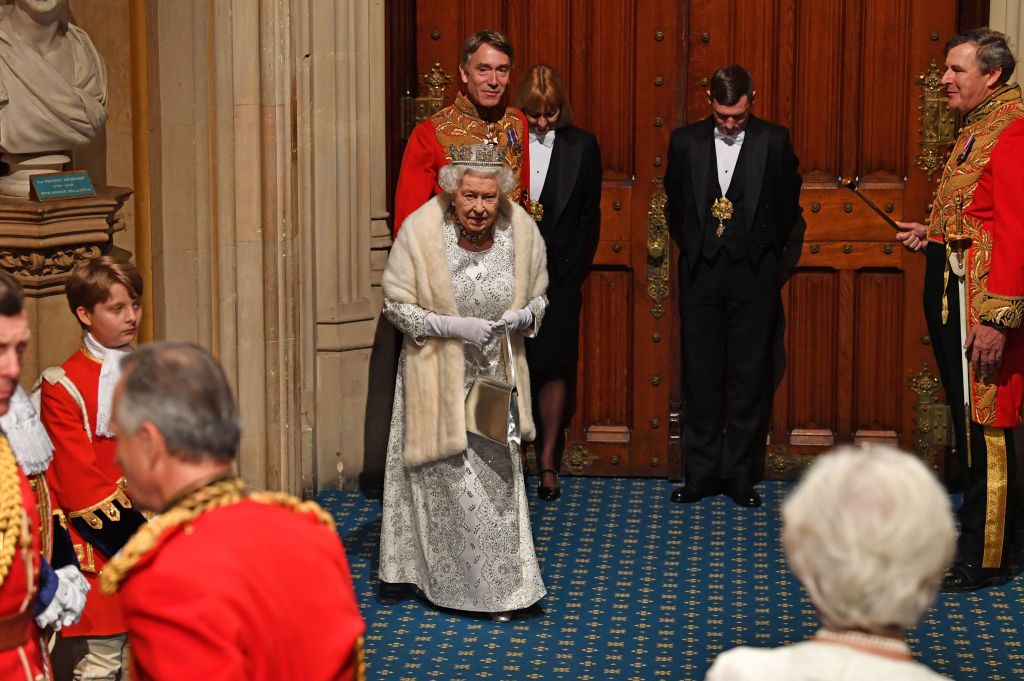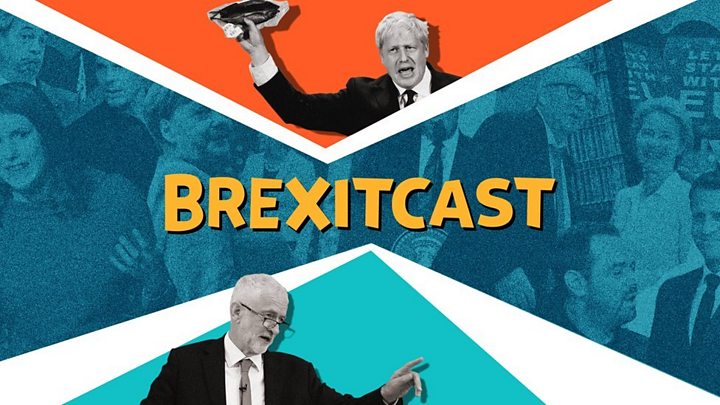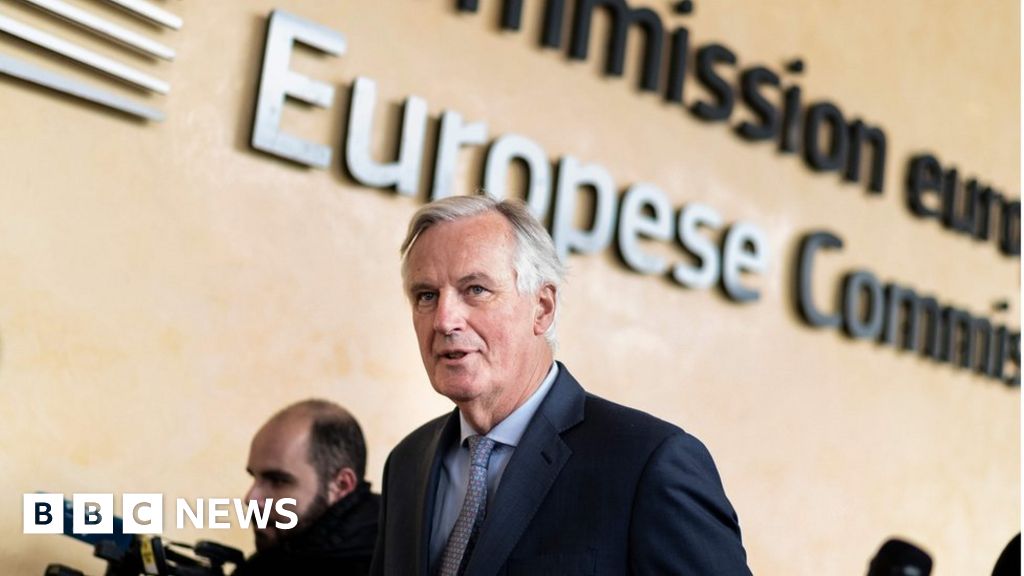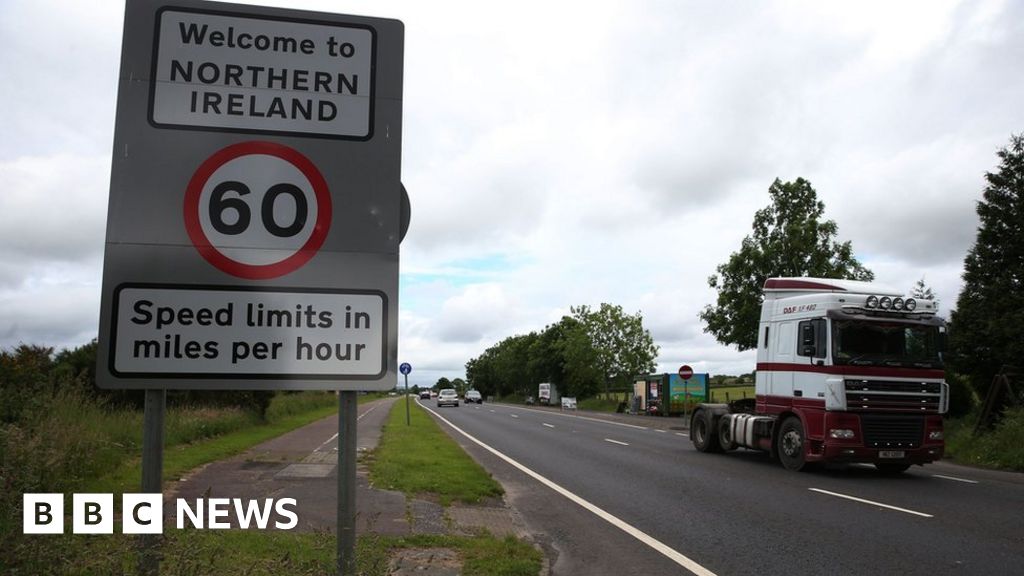Francisco Seco AP
BRUSSELS — British and European Brexit negotiators blew way past a midnight deadline and continued talks Wednesday to try to reach a deal to split Britain from the European Union.
With negotiations ongoing, Britain appeared willing to make major concessions, according to diplomats familiar with the discussions. And policymakers on both sides seemed more optimistic than they had in months that a deal might be imminent.
But the mood in Brussels was changing hour to hour, and everyone remained wary.
Not only does Johnson have to strike a bargain that can get the approval of 27 other E.U. countries — itself a difficult task — he then must sell it at home. British domestic politics can be unforgiving. Johnson’s predecessor, Theresa May, made a deal with Brussels only to have it defeated three times in Parliament.
On Wednesday morning, Johnson’s official spokesman told reporters, “Issues remain to be resolved.”
There was furious wheeling and dealing at 10 Downing Street on Wednesday, with lawmakers coming and going.
All eyes were on the hardline Brexiteers in Johnson’s Conservative Party and a group of 10 lawmakers from Northern Ireland’s Democratic Unionist Party, whose support is crucial.
The new British premier has staked his political future on leading his country out by Oct. 31 — or at least on being seen to have tried his utmost.
But even if the foundations of a deal are agreed this week, E.U. diplomats said an extension may be necessary to finalize the details.
[The queen gives her speech in Parliament as Brexit talks stall in Brussels]
In a series of briefings, European diplomats said any deal agreed in principle must be put into detailed legal text, then translated, then briefed to European leaders in time for an E.U. summit that begins on Thursday — and there just did not appear to be enough time.
E.U. leaders who will meet in Brussels have been expecting to either sign off on a deal, agree to delay the Brexit date beyond October or brace for a sudden and uncontrolled British departure from the bloc.
But diplomats in Brussels who spoke with The Washington Post said it was possible that European leaders at the summit may be able to offer Johnson a non-binding “political statement” offering support for a deal in principle.
The Europeans don’t want to actually negotiate the details at the summit. “No appetite” for that, said one senior diplomat.
Ireland’s Prime Minister Leo Varadkar told Sky News he had spoken with Johnson on Wednesday and that a short delay — and another E.U. summit later this month — might be needed.
A senior European diplomat in Brussels told The Post, “there are these high expectations that a deal can be made, that we can make it, but of course the timing is crucial.”
Francisco Seco
AP
People shelter against the rain as they walk past the E.U. headquarters in Brussels on Wednesday.
E.U. Council President Donald Tusk told a Polish broadcaster that the “basic foundations of an agreement are ready” and “theoretically [on Thursday] we could accept this deal with Great Britain.”
“Everything is going in the right direction,” Tusk said, “But you will have noticed yourselves that with Brexit and above all with our British partners anything is possible.”
The key sticking point in the closed-door talks in Brussels has been what happens to the border between Northern Ireland, which will leave with the rest of the U.K., and the Republic of Ireland, which will remain a member of the E.U.
The border has proved to be one of the most vexing issues facing negotiators over the past three years.
Today, the boundary is mostly invisible. A driver whizzing between Belfast and Dublin is not required to stop for any customs check or security control. There are no tollbooths, no cameras, not even a signpost.
The promise of an open border was central to the 1998 Good Friday Agreement, which ended the Troubles, as the 30 years of sectarian violence in Northern Ireland are known.
Both the U.K. and the E.U. say they want to keep the border open to preserve the hard-won peacee. But they have disagreed about how to achieve that.
The Europeans have said Northern Ireland would have to remain tightly aligned E.U. rules, to protect the customs union and single market and prevent smuggling.
May had said “no U.K. prime minister would ever agree to” a proposal that would create a customs border in the Irish Sea. And Johnson agreed with her at the time. But on Tuesday, he seemed to be moving far closer to European demands in a bid to push the talks to a conclusion.
[Boris Johnson’s office spins call with Merkel, says Brexit breakthrough ‘essentially impossible’]
By some counts, compared to May, Johnson would face an even tougher vote in the House of Commons. His Conservative Party no longer holds a majority, and opposition leader Jeremy Corbyn has warned that his Labour Party will not support Johnson’s “Tory Brexit,” no matter the details (though some Labour rebels have signaled they might just back a deal).
The most hard-line Brexiteers, known as the “Spartans,” may also rise up against any deal that crosses their red lines.
But there were signals that the Tories might rally behind their new prime minister.
Steve Baker, leader of the pro-Brexit European Research Group (ERG), left a meeting Tuesday at 10 Downing Street telling reporters outside that he was “optimistic that it is possible to reach a tolerable deal that I am able to vote for.”
The former leader of the ERG and now leader of the House of Commons, Jacob Rees-Mogg, pleaded with fellow Conservatives to trust Johnson because — unlike May — he is a true Brexiteer, a leader of the winning June 2016 campaign to leave the European Union.
Rees-Mogg said Parliament was desperate for a deal.
Even tougher for Johnson and any deal he crafts are the 10 lawmakers from the Democratic Unionist Party (DUP) from Northern Ireland, who have opposed any kind of Brexit deal that would see the Irish province treated differently than England, Wales and Scotland, their fellow nations in the U.K.
“Discussions continue,” DUP lawmaker Arlene Foster tweeted Wednesday. “Needs to be a sensible deal which unionists and nationalists can support.”
Meg Russell, a politics professor at University College London, said an extension was “highly likely” even if a deal got a thumbs up in an emergency session in the House of Commons on Saturday. Legislation would still need to pass through both Houses of Parliament. That yet-to-be-published legislation would likely be lengthy, complicated and controversial, she said.
“So that means that even if there is a deal, an extension is necessary,” she said.
Karla Adam in London and Quentin Ariès in Brussels contributed to this report.
Read more
In or out? Labour Party remains tortuously conflicted over Brexit and leader Jeremy Corbyn.
The ‘rebel alliance’ teamed up to thwart Boris Johnson’s plans. Can it stay united to steer Brexit?
Today’s coverage from Post correspondents around the world
Like Washington Post World on Facebook and stay updated on foreign news
https://www.washingtonpost.com/world/europe/europe-and-britain-edge-closer-to-brexit-deal--but-still-not-over-the-line/2019/10/16/e6d88472-ef82-11e9-bb7e-d2026ee0c199_story.html
2019-10-16 16:37:00Z
52780406083772



